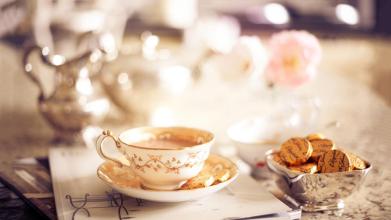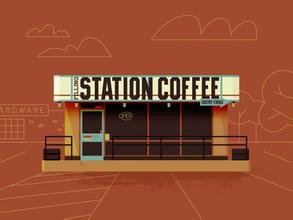Fragrant Burundian Coffee Flavor Taste introduction to Fine Coffee in Manor production area
There are two major ethnic groups in Burundi, and only about 15 percent of the Tutsi have ruled the country since the 16th century, controlling the civilian population, which is mainly made up of Hutu, plus a very small number of indigenous Twa. This abnormal social structure occupied by ethnic minorities planted the evil seed of national instability and reached its peak in October 1993. Just four months after taking office, Melchior Ndadaye, Burundi's first ever Hutu head of state and the first democratically elected president, was assassinated by a mainly Tutsi-controlled military. The death of Ndadaya led to a comprehensive ethnic conflict in which at least 200000 of the population of both sides were slaughtered, of which 65000 Tutsi were slaughtered to fewer than 5000. The massacre lasted until 2002, when the Tutsi government finally signed an international armistice with four different Hutu rebels, while the ceasefire agreement with the last rebel group, the Forces nationales de Liberation (FNL) (French: Conseil National Pour la D é fense de la D é mocratie-Forces pour la D é mocratie, NCDD-FDD), signed 10.5 million (2014) in Dar es Salaam, Tanzania, on September 7, 2006. It consists of three tribes: Hutu (84%), Tutsi (15%) and Tewa (1%). The official languages are Kirundy and French, Mandarin is Kirundy, and some residents speak Swahili. Among the residents, 61% believe in Catholicism, 24% believe in Protestantism, 3.2% believe in primitive religions, and the rest believe in other religions or do not. The proportion of the population is: 48.7% of the total population is male, and 51.3% is female. People under the age of 15 account for about 48% of the total population. The urban population accounts for 10% of the total population, and the rural population accounts for 90% of the total population. Among them, the population of the capital Bujumbura is about 500000. With a population density of 342 people per square kilometer, on 18 March 2005, the Post-Transitional Constitution was promulgated and implemented, which is the sixth constitution since independence. The Constitution stipulates that a multi-party system should be implemented. The President is the head of State, the head of Government and the commander-in-chief of the armed forces. He is elected by direct universal suffrage for a term of five years and can be re-elected once. The two vice presidents are appointed by the president from different nationalities and political parties. The Hutu and Tutsi ethnic groups account for no more than 60% and 40% of the government and the National Assembly respectively, and 50% of the Senate. The members of the government are appointed by the President after consultation with the Vice President, composed of representatives of different political parties and accountable to the President. The national defense and security forces are subordinate to the organs of state civilian power, are composed of professionals, do not join any political parties, and the proportion of any ethnic group in the national defense force shall not exceed 50%.
Burundi has the most diverse and successful coffee industry in the world, and has its own characteristics. Coffee in this country was introduced by Belgian colonists in 1930 and is now grown only on small farms. Unfortunately, many of these farms are on the border with war-torn Rwanda, putting pressure on coffee production. Almost all coffee produced in Burundi is Arabian coffee beans, while coffee trees in Ngozi are planted at an altitude of more than 1200 meters. Burundi coffee is aromatic and highly acidic, and most of its products are exported to the United States, Germany, Finland and Japan. Coffee and tea exports are currently the only economic mainstay of the country, so in 2013, Ben and his wife Kristy started this Long Miles Coffee Project (LMCP), hoping to change the quality of local coffee and people's lives. In 2015, their coffee won third and eighth place in the Burundian COE Cup, and roasters around the world affirmed Burundi's potential.
Recently in Shanghai, Ben told us his story and showed us a passionate traditional Burundian drumming show that Burundian coffee was first brought in by the Germans in the 1900s; they found that "bourbon" was the best variety to grow in the local climate, which is usually a "tropical" plateau climate with a very large temperature difference between day and night. However, due to the suspension of investment in coffee research, bourbon has become the only coffee variety left in the country and has been treated with "full washing".
The development of boutique coffee needs continuous breakthrough and innovation. In 2014, Long Miles Coffee Project (LMCP) began to use sun treatment and honey treatment for their coffee, which made professional coffee cup testers overjoyed at the taste of the coffee. According to Miss Gu Qinru, head of Latorre & Dutch Coffee Asia, "usually we can drink citrus and plum flavors in washed Burundian coffee. And this is our first cup of Burundian coffee treated with sun and honey. Its flavor turns into more complex strawberries, grapes and tropical fruits. It seems that the way it is handled is crucial to the taste of the coffee.

Important Notice :
前街咖啡 FrontStreet Coffee has moved to new addredd:
FrontStreet Coffee Address: 315,Donghua East Road,GuangZhou
Tel:020 38364473
- Prev

Strong taste of Ecuadorian coffee taste introduction of boutique coffee in manor producing area
Central mountain: after entering Ecuador from Colombia, the Andes is divided into the eastern and western Cordillera mountains, with a plateau high in the north and low in the south, averaging between 2500 and 3000 meters above sea level. The Andes run through the middle of the border. The ridges crisscross, dividing the plateau into more than ten intermountain basins. The most important are the Quito basin and the Cuenca basin in the south. Volcanic crowds in the territory
- Next

Rich fruit flavor and taste characteristics of Puerto Rican coffee introduction of boutique coffee beans in producing areas
In 1898, the Spanish-American War broke out and Spain was defeated. According to the Treaty of Paris, Puerto Rico was ceded to the United States. The administrative jurisdiction of the United States over Puerto Rico first took the form of a military junta. During its two years of governance of the island, the junta established schools, roads, railways, hospitals and health facilities. In 1900, the United States Congress established civilian control over the island. The Governor, the Cabinet and
Related
- Detailed explanation of Jadeite planting Land in Panamanian Jadeite Manor introduction to the grading system of Jadeite competitive bidding, Red bid, Green bid and Rose Summer
- Story of Coffee planting in Brenka region of Costa Rica Stonehenge Manor anaerobic heavy honey treatment of flavor mouth
- What's on the barrel of Blue Mountain Coffee beans?
- Can American coffee also pull flowers? How to use hot American style to pull out a good-looking pattern?
- Can you make a cold extract with coffee beans? What is the right proportion for cold-extracted coffee formula?
- Indonesian PWN Gold Mandrine Coffee Origin Features Flavor How to Chong? Mandolin coffee is American.
- A brief introduction to the flavor characteristics of Brazilian yellow bourbon coffee beans
- What is the effect of different water quality on the flavor of cold-extracted coffee? What kind of water is best for brewing coffee?
- Why do you think of Rose Summer whenever you mention Panamanian coffee?
- Introduction to the characteristics of authentic blue mountain coffee bean producing areas? What is the CIB Coffee Authority in Jamaica?

